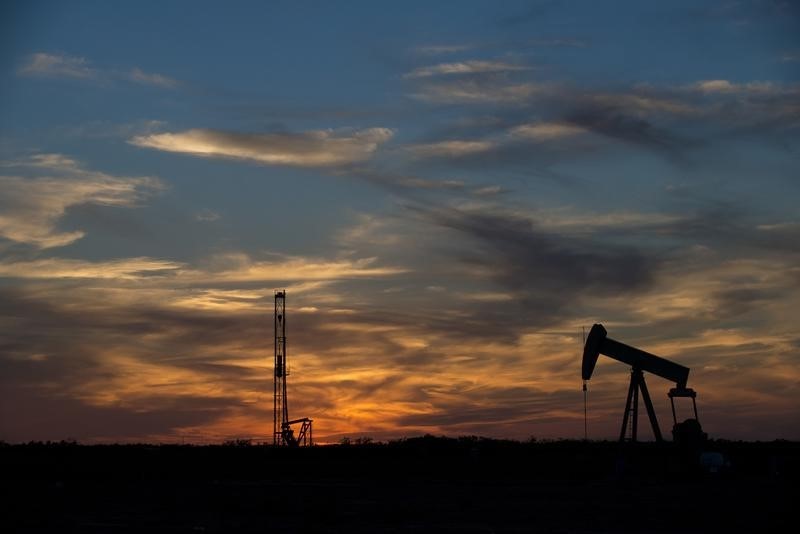By Barani Krishnan
NEW YORK (Reuters) - Brent oil prices settled steady on Tuesday after the deadly blasts in Brussels while U.S. crude futures fell, then extended losses in post-settlement trade on industry data showing bigger than expected builds in domestic inventory.
Oil prices fell early as investors fled risk after the attacks in Belgium that killed at least 30 people.
Brent erased losses and settled a little higher as equity markets reversed losses and safe-havens such as gold and government bonds pulled back from their highs.
U.S. crude, however, settled lower, then extended losses after the American Petroleum Institute (API), an industry group, said in a report after the oil's market settlement that U.S. crude stockpiles rose almost 9 million barrels last week to reach a record high of nearly 532 million.
The stockpile growth reported by the API was nearly 6 million barrels above estimates from analysts polled by Reuters. Official crude inventory data from the U.S. government will be released on Wednesday.
The front-month contract in U.S. crude futures (CLc1) was down 30 cents at $41.22 (29 pounds) a barrel by 5:05 p.m. EST (2105 GMT), after the API report. It had ended the session just 7 cents down at $41.45, after hitting a 2016 high of $41.90 earlier.
Brent crude (LCOc1) was up 6 cents at $41.60 a barrel in post-settlement trade, after finishing the session 25 cents higher at $41.79.
"It's a remarkable crude build reported by the API, which will definitely create some worry in tomorrow's trade for oil bulls," said John Kilduff, partner at New York energy hedge fund Again Capital.
"But there are also signs that we've had a larger-than-expected gasoline draw, so some of that bearish sentiment in crude may be ironed out."
API reported a gasoline drawdown of 4.3 million barrels, versus the 1.5 million-barrel decline forecast in the Reuters poll.
Some traders and analysts have warned of potential profit-taking in oil after crude prices gained more than 50 percent over the past six weeks despite marginal improvements in supply-demand. Much of the rally has been driven by plans engineered by OPEC and other major oil producers to freeze output at January levels.

"I wouldn't be surprised to see some market participants ... saying the price increase that we've had has been enough," Commerzbank (DE:CBKG) strategist Eugen Weinberg said.